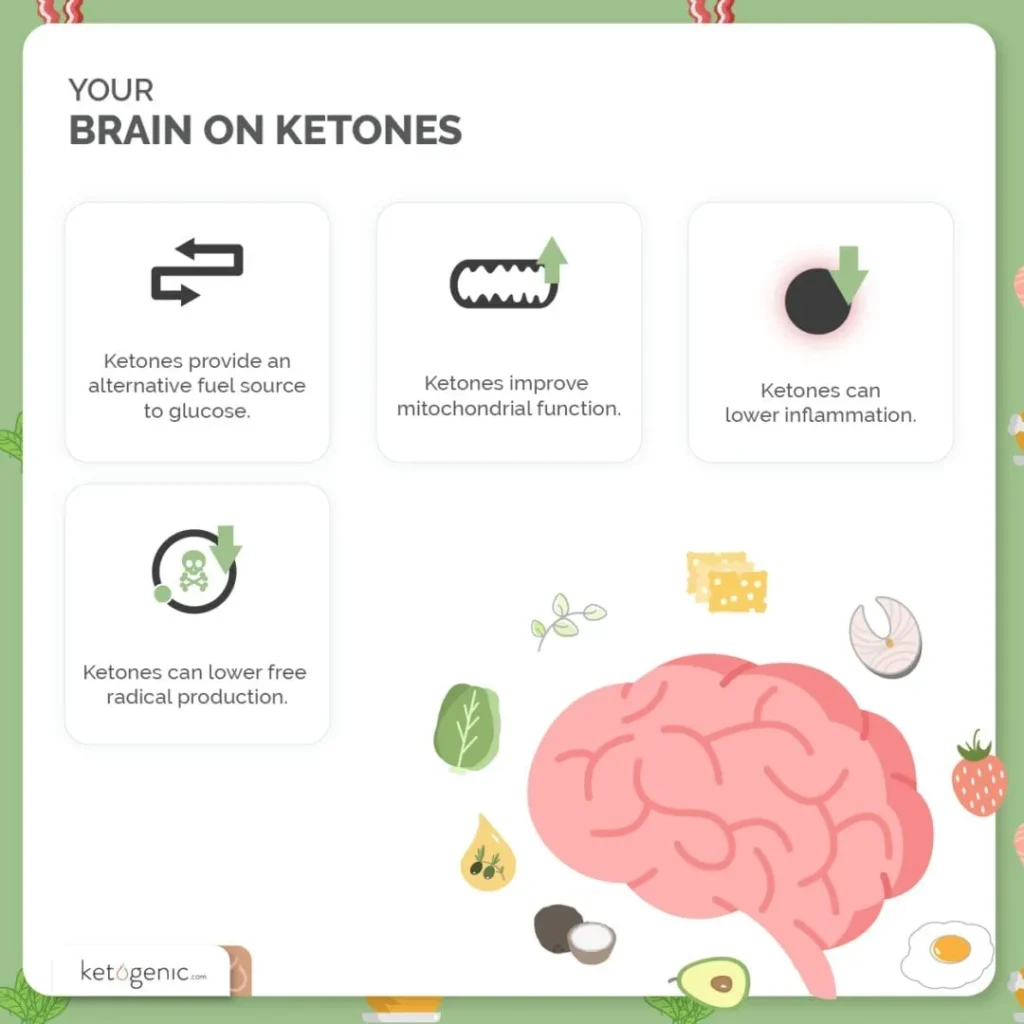
The Science Behind Keto Mental Clarity: How Low-Carb Eating Enhances Cognitive Performance
In recent years, the ketogenic diet has gained popularity for its potential benefits in weight loss, blood sugar control, and overall health. But did you know that this high-fat, low-carb diet may also have a positive impact on cognitive performance and mental clarity? In this article, we will explore the science behind how the ketogenic diet can enhance brain function and improve focus, memory, and overall cognitive performance.
What is the ketogenic diet?
The ketogenic diet is a high-fat, low-carbohydrate diet that has been used for decades to treat epilepsy in children. The diet works by forcing the body to burn fat for fuel instead of carbohydrates, leading to the production of ketones as a byproduct of fat metabolism. Ketones are a more efficient source of energy for the brain than glucose, the primary fuel source derived from carbohydrates.
To achieve a state of ketosis, where the body is burning fat for fuel and producing ketones, individuals typically restrict their carbohydrate intake to less than 50 grams per day and consume high amounts of healthy fats and moderate amounts of protein. This macronutrient profile shifts the body’s metabolism from relying on carbohydrates to using fat as its primary fuel source, leading to weight loss and other metabolic benefits.
How Does the ketogenic diet Enhance Cognitive Performance?
1. Enhanced Brain Function: The brain is a highly energy-demanding organ that requires a constant supply of energy to function optimally. When the body is in a state of ketosis, the brain can efficiently utilize ketones as an alternative fuel source to glucose. This leads to improved cognitive function, mental clarity, and focus.
2. Reduced Inflammation: Chronic inflammation in the body has been linked to cognitive decline and neurodegenerative diseases such as Alzheimer’s and Parkinson’s. The ketogenic diet has been shown to reduce inflammation in the brain and body, which may help protect against cognitive decline and improve overall brain health.
3. Increased Brain-Derived Neurotrophic Factor (BDNF): BDNF is a protein that promotes the growth and survival of neurons in the brain. Low levels of BDNF have been associated with cognitive impairments, depression, and anxiety. The ketogenic diet has been shown to increase BDNF levels, which may enhance neuroplasticity, learning, and memory.
4. Stable Blood Sugar Levels: Fluctuations in blood sugar levels can impact cognitive function, mood, and energy levels. By reducing carbohydrate intake and stabilizing blood sugar levels, the ketogenic diet can help prevent blood sugar spikes and crashes that can lead to brain fog and fatigue.
5. Improved Mitochondrial Function: Mitochondria are the powerhouse of the cell and are responsible for producing energy in the form of adenosine triphosphate (ATP). The ketogenic diet has been shown to improve mitochondrial function and increase ATP production, which may enhance cognitive performance and mental clarity.
FAQs
1. Is the ketogenic diet safe for long-term use?
While the ketogenic diet has been shown to have numerous health benefits, it may not be suitable for everyone. It is important to consult with a healthcare provider or registered dietitian before starting any new diet plan, especially if you have underlying health conditions or are pregnant or breastfeeding.
2. Can I experience mental fog or fatigue when first starting the ketogenic diet?
Some individuals may experience what is commonly referred to as the “keto flu” when transitioning to a low-carb, high-fat diet. Symptoms may include mental fog, fatigue, headaches, and irritability. These symptoms are usually temporary and can be mitigated by staying hydrated, increasing electrolyte intake, and gradually reducing carbohydrate intake.
3. Are there any potential side effects of the ketogenic diet on cognitive function?
While the ketogenic diet has been shown to enhance cognitive function in many individuals, some may experience side effects such as difficulty concentrating, mood swings, or irritability. These side effects are usually temporary and can be managed by adjusting the macronutrient ratios, increasing hydration, and incorporating nutrient-dense foods into the diet.
4. Can I achieve mental clarity without following a strict ketogenic diet?
While the ketogenic diet has been shown to enhance cognitive function and mental clarity, there are other dietary and lifestyle strategies that can also improve brain health. These include consuming a balanced diet rich in fruits, vegetables, healthy fats, and lean proteins, staying hydrated, getting regular exercise, practicing stress management techniques, and getting an adequate amount of sleep.
In conclusion, the ketogenic diet may have a positive impact on cognitive performance and mental clarity by enhancing brain function, reducing inflammation, increasing BDNF levels, stabilizing blood sugar levels, and improving mitochondrial function. While the diet may not be suitable for everyone, it is important to consult with a healthcare provider before making any significant changes to your diet. By incorporating the principles of the ketogenic diet into your lifestyle, you may experience improved focus, memory, and overall cognitive performance.